Best Practices for Homeowner and Condominium Association Operations: A Checklist
Operating a successful HOA or Condo association requires the right combination of excellent volunteer and leader support along with the ideal best practices. Your board might have willing-and-able members who care about the community and serving it well. However, without the right guidelines and practices, they won’t have the tools they need to manage finances, collect association assessments, resolve complaints, or ensure operational compliance with the law.
Your association is more than a team of people trying to do good things for residents! As an official HOA or Condo association, your group must follow laws and operate within the community’s best interest with integrity and transparency.
Whether you’re creating a neighborhood board for the first time or your existing HOA or Condo association could use some guidance to improve operations, we’re here to help! Use the guide and checklist to make sure your association delivers everything it should for effective operations! A well- run organization helps your community grow and fosters excellent relationships among neighbors!
We hope this guide and checklist help you operate an association that serves your community with excellence! If you have any questions as you work through this checklist or if your community could benefit from professional Homeowner and Condominium association management support, the team at Trestle Community Management is here for you.
Download the Best Practices for Homeowner and Condominium Association Operations: A Checklist

Essential Best Practices
At the heart of every well-organized association are a few best practices that help set the standards for all other processes and deliverables for the community. When establishing an association or reviewing your current operations with an eye on improvement, make sure your board has clear policies and procedures for these essential best practices.
Establish and Understand the Rules
Your HOA or Condo association should have documented rules that govern homeowners (and the board). These guidelines should be easily accessible to all homeowners. Each board member should understand the rules and how to help residents comply.
Depending on your type of community, these rules can include how homeowners can and can’t modify homes to fit within the look, feel, and quality of the neighborhood. Rule enforcement should be carried out in the spirit of maintaining properties and resident expectations rather than punitive actions for minor infractions.
Rules should also include how residents can use common areas and facilities. With community-accessible amenities also comes the board’s responsibility to maintain them well. Homeowners pay HOA or Condo association assessments with the expectation that those funds go toward well-kept spaces and amenities outlined in the association’s documentation.
Make sure your community’s rules comply with local and association laws and ordinances. While the board’s job is to keep the community safe and happy, overreach can lead to lawsuits and unhappy residents.
Remain Transparent and Accountable
Your board should operate at the highest levels of transparency and accountability. Residents entrust condominium and homeowner associations to use assessments to keep shared spaces clean and operational. Association assessments might also help support organized events and activities that can draw potential homeowners into the community.
Organizing board meetings and reporting on projects and community budgets are important aspects of operating with integrity and accountability. Make sure your board commits to using funds appropriately for the community’s needs and benefit.
Stay On Top of Finances
Managing assessments, projects, invoices, and resident fines requires your association board to stay on top of finances. Develop a system of checks and balances with a reliable way to account for every incoming and outgoing dollar that applies to the community’s budget and operations.
While board members and leaders will come and go, it’s critical to establish and maintain an effective accounting system that stays in place during board turnover.
Maintain Consistent Enforcement
Enforcing the community rules can be one of the more unpleasant tasks that board members must undertake. Building positive relationships between the board and residents at large is critical to your HOA or COA’s success and good standing in the community. However, volunteer board members must sometimes work with their neighbors to correct rule violations or impose fines.
Effective rule enforcement must be impartial and consistent across all homes, residents, and rules. Showing favoritism to one resident over another can lead to angry neighbors and lawsuits. The board must establish the rules and commit to consistent enforcement, whether you’re dealing with a neighbor everyone loves (or one that is often the source of tension in the community).
Optimal Communication Practices
With essential best practices in place or your board’s operation, it’s time to focus on communication! Excellent communication between the board and residents at large is critical to building good relationships and maintaining a thriving community.
If your community members feel out of the loop about board activities or your leadership is looking for ways to keep Homeowner or Condo association members better informed, consider these best practices:
Hold Regular Meetings
Depending on the association bylaws, your board might already have a minimum number of meetings scheduled throughout the year. However, consider additional meetings for special projects or to address issues within the community.
Reach Out To Members More Frequently
Emails are an excellent way to stay in touch with residents between formal meetings. Creating a monthly or bi-weekly email newsletter is an excellent way to highlight events, provide updates about projects, and help residents feel connected.
Keep It Simple
If long emails with too many details aren’t getting through to your residents, it’s time to simplify. Use emails or informative online posts to make announcements and share highlights. Follow up with a scheduled meeting or additional resources to present details and answer questions.
No matter how your board communicates with association members, remain transparent and accessible. Informed residents are more likely to have faith in the board to manage fees and budgets in the community’s best interest!
Bonus Tips
What else should your board consider when optimizing the best practices for an organized and successful association? These bonus tips can help!
Don’t Delay Conflict Resolution
Handle issues as they come up and work toward solutions that protect relationships while following the HOA or Condo association rules.
Use The Right Vendors
Whether you outsource bookkeeping, property or facilities management, and legal services, partner with third-party resources that align with the mission of your community association and support your work!
Recruit Quality Board Members And Leaders
Not everyone is a good fit for your board, but finding residents willing to volunteer their time (and deal with association headaches) can be challenging. Work with a professional HOA or Condo association management company to create a board that attracts quality members and makes their service worthwhile.
Review Policies Periodically
While it’s important to honor bylaws and articles of incorporation, take time to review operational practices annually or every few years. The needs of your community might change over time. Make sure your board can adapt to continue serving residents well!
An association that puts excellent practices in place and stays focused on the good of the community will be an asset to the neighborhood! Serving on an association board is no easy task. We hope these insights help you develop and apply the best practices for a healthy, happy, and neighborly community.
Your HOA Best Practices Checklist
Now that you have some expert insights into running a top-notch Homeowner or Condominium association, it’s time to look at your current practices and make sure your association is set up for success.
Review this list with your board and make adjustments as needed. If you need help walking through these aspects of community association management, our professional team is here to help!
Rules, Enforcement, and Fees
- Review current rules for homeowners
- Is each rule still applicable?
- Document recommended changes to bring to the board and membership
- Review current enforcement policies for homeowners
Finances
- Review current accounting software and procedures
- Are invoices, due collection, and fines processed on time?
- Is it time to update the software?
- Is it time to outsource bookkeeping or accounting?
- Review annual budget
- Does the current fee structure cover all expenses?
- Review association fees
- Bring recommended adjustments to the board and membership
- Review funding and budgeting for special projects or community improvements
Board Policies and Transparency
- Do bylaws and articles of incorporation comply with the law?
- Review the system of checks and balances
- Review board member and leadership recruiting practices
- Review procedures to remove a board member
- Review board roles and responsibilities
- Review reporting methods and policies for accountability
Communication
- Review current board-resident communication methods
- How often do regular meetings occur?
- Board-only meetings
- Community meetings
- How often does the board send email communications?
- Is it time for a regularly scheduled newsletter?
- How often do regular meetings occur?
- Does the HOA have a community-only directory for residents?
Vendors
- Review (and rate) all current third-party vendors
- Is it time to bid for new vendors to reduce costs or improve services?
- Are all invoices paid on time?
- Are there additional community services that the board should outsource?
Complaints and Community Satisfaction
- Review the process to review and handle resident complaints
- Are there any outstanding complaints that have yet to be resolved?
- Are there any recurring complaints that need a more significant or permanent solution (including a policy or rule change)?
- What is the overall satisfaction of the community with the association board and services?
- What can the board do to increase resident satisfaction?
- Overall, is the community happy and healthy?
- If not, why not?
- What steps can the board take to support a thriving community?
Copyright © 2022 Trestle Property Services dba Trestle Community Management. All Rights Reserved.

